- Home
- Christie Golden
STAR TREK: The Original Series - The Last Roundup
STAR TREK: The Original Series - The Last Roundup Read online
Christie Golden
Based upon Star Trek®
created by Gene Roddenberry
POCKET BOOKS
New York London Toronto Sydney Singapore
The sale of this book without its cover is unauthorized. If you purchased this book without a cover, you should be aware that it was reported to the publisher as “unsold and destroyed.” Neither the author nor the publisher has received payment for the sale of this “stripped book.”
This book is a work of fiction. Names, characters, places and incidents are products of the author’s imagination or are used fictitiously. Any resemblance to actual events or locales or persons, living or dead, is entirely coincidental.
POCKET BOOKS, a division of Simon & Schuster, Inc. 1230 Avenue of the Americas, New York, NY 10020
Copyright © 2002 by Paramount Pictures. All Rights Reserved.
Originally published in hardcover in 2002 by Pocket Books
This book is published by Pocket Books, a division of Simon & Schuster, Inc., under exclusive license from Paramount Pictures.
All rights reserved, including the right to reproduce this book or portions thereof in any form whatsoever. For information address Pocket Books, 1230 Avenue of the Americas, New York, NY 10020
ISBN: 0-74344910-X
First Pocket Books paperback printing June 2003
10 9 8 7 6 5 4 3 2 1
POCKET and colophon are registered trademarks of Simon & Schuster, Inc.
For information regarding special discounts for bulk purchases, please contact Simon & Schuster Special Sales at 1-800-456-6798 or [email protected]
Printed in the U.S.A.
This book is dedicated
to Three Wise Men:
Robert Amerman
Mark Anthony
and
Michael Georges
Thanks, guys.
Contents
Prologue
Chapter One
Chapter Two
Chapter Three
Chapter Four
Chapter Five
Chapter Six
Chapter Seven
Chapter Eight
Chapter Nine
Chapter Ten
Chapter Eleven
Chapter Twelve
Chapter Thirteen
Chapter Fourteen
Chapter Fifteen
Chapter Sixteen
Chapter Seventeen
Chapter Eighteen
Chapter Nineteen
Chapter Twenty
Chapter Twenty-one
Chapter Twenty-two
Chapter Twenty-three
Chapter Twenty-four
Chapter Twenty-five
Chapter Twenty-six
Chapter Twenty-seven
Epilogue
About the e-Book
Prologue
LIGHTS FLICKERED on inside the last of the mighty sky-ships. Smoothly, the oval vessel rose into the air, caught the sunlight on its shiny, metallic surface, and then disappeared. The stoic façade of the abandoned people finally shattered. A cry of pain and agony swelled up, a cry that their proud natures would never have permitted them to utter while their so-called masters were present to scorn their torment.
Takarik heard the cry of his people, and his heart ached for them. He let them wail and scream, sounds that he had never before heard any of them make. They were left alone on this place now, with no way to ever return to their homeland.
No way that they had yet thought of, at least.
When at last the deep, mourning sobs had subsided into soft sighs and shuddering whispers, he spoke.
“What a glorious day is now dawning for our people!” Takarik cried, lifting his arms as if to embrace the world upon which they had been stranded. His people [2] stared at him as if he had gone mad. He smiled, and his eyes twinkled. He meant every word.
“Those who believed themselves to be our betters think they have rid themselves of us. After so many years of doing their hard labor, they no longer found us necessary, so they placed us here. And in so doing, they did us a very great favor.”
“Takarik!” called an angry voice. “We have been removed from all we know! We have been callously disposed of, as if we were nothing more than their waste matter!”
“What you say is true, Minkar,” Takarik acknowledged. “But we are not they. We do not have to regard what has happened in the same light as they do. What they have done, I tell you truly, is freed us. The land is rich with fruit and game. We have a small amount of technology that will enable us to build shelters and communicate and find and prepare food. We have our hearts yet, and our keen minds. And we also have this!”
He gestured to a youth standing behind him, holding what seemed to be an innocuous box. It was scratched and dented, but within it ... ah, within ... Takarik had deliberately hidden it in this shabby box, tucked it away casually with clothes and supplies as if it had no more worth than those ordinary things. It had escaped discovery during a cursory search by a guard who obviously thought handling such tainted things was beneath him.
With a ceremonial flourish, Takarik lifted the lid and withdrew the precious contents. He held it aloft [3] proudly, and heard some murmurs. The gem was as large as his head, and even though it had not been faceted as so many precious stones were, it caught and seemed to hold the very sun. It was almost completely transparent save for its amber tinting like liquid sunlight, and without flaw as far as Takarik could determine.
“That we were able to bring this safely from our homeworld to here, without our captors ever discovering it, tells me that we have a great destiny in this place,” Takarik continued. “Many of you have glimpsed this as you labored for those who deemed themselves superior. But many more of you have never seen it. Oh, you have heard the tales; so have our captors, but as far as they know, they are children’s stories.
“We do not yet know its true value, for we have never been permitted to reveal its existence to others, but its beauty alone inspires us. We took heart in our labors, knowing that it shone for us alone. Our captors never even knew it was there. This gem, this precious jewel, has made the bitter journey with us to symbolize hope.”
Carefully, he replaced the stone in its deceptively nondescript box.
“This place will become our new home, but we will never forget our true heritage. We will thrive here, in a place where we will finally have the opportunity to govern ourselves. We will live in the shelters we build, and eat what we have harvested. We will devote our culture to knowledge and development. We will always remember the Great Stone and its beauty, and know that the gods gave it to us alone. And one day, we will take what [4] is rightfully ours, earned by our labor, our blood, our sweat.”
He looked at their eager, upturned faces. Such hope was another expression he had never seen on visages that were more accustomed to not revealing their emotions at all, lest they suffer for it.
“It will not be in my lifetime. Nor in hers,” he said, pointing to an infant in her mother’s arms. “Nor in her child’s. But one day, I promise, it will happen.
“I swear to you by the beauty of the Great Stone—one day, we will go home.”
Chapter One
IT WAS A DEAD WORLD.
It had never supported life of its own. The planet known in Federation records as Polluxara IV had no intelligent life that might interfere with the Prime Directive. It sported not so much as a microbe, but within its lifeless, rocky exterior had once flowed a rich vein of what was then one of the most precious substances in the universe—dilithium.
It was this deposit that had led Earth, almo
st a hundred and fifty years ago, to establish a colony in order to mine the mineral. But now, once again, Polluxara IV was lifeless, save for the twenty-seven souls that stood safely encased in environmental suits on its still-radioactive exterior.
Captain James Tiberius Kirk, once Admiral Kirk, and earlier and since captain of the U.S.S. Enterprise, was one of the twenty-seven. The others were much younger and, at this moment, were quieter than he had ever heard them.
[6] Kirk wasn’t surprised. Standing at the site of a great tragedy had that effect.
Towering above them were the ruins of what had once been a colony of vital importance to a pre-Federation Earth. There remained only sharp shards of metal and other materials, warped, melted, twisted, and pulverized. The bodies were long gone, of course. What the Earth forces could come and retrieve to honor with a hero’s burial had been so gathered, decades past. But there hadn’t been enough remains to bury of most of them; hadn’t been enough to find.
Kirk didn’t speak immediately after they materialized. He let the cadets look around and absorb what they saw for themselves. The wide-eyed solemnity he saw in their faces—a mixture of species that would have stunned those who had died here a century ago—made him nod slightly in approval. Good kids, all of them. He’d been right to call in a few favors on this.
Time for the pop quiz.
“Cadet Singh,” Kirk said sharply. Indira Singh’s head whipped around.
“Sir!” she answered, snapping to attention despite the mute testimony to death that lay all around her.
“Tell me about Commander Lowe, if you please.”
Light glimmered on her protective faceplate, but not so much that Kirk couldn’t see her lick her lips nervously. “Commander Sabra Lowe led the mining colony here in the middle part of the twenty-second century. It was a state-of-the-art colony that turned out swift production of a very pure form of dilithium, almost ninety-two percent pure.”
[7] “How many other active dilithium mining colonies were there at that time?” Out of the corner of his eye, he saw Cadet Skalli Jksili raise her long, slender arm, but he ignored her.
“Only seven. Polluxara IV turned out—” Singh hesitated, and her dark eyes widened as she frantically sought the answer. “Four point oh seven two times the amount of the others.” She breathed easier.
“Very good. You’ve just made an excellent start on your final.”
A chorus of protest rose as the students realized that Kirk was apparently springing at least part of the final exam of his course, “Command Decisions and Their Consequences,” on them here, now, unannounced. The sounds were oddly comforting to Kirk, standing here among the ruins. It was a sound that reminded him that life had to go on, no matter how many colonies—
“I did tell you to do your research,” Kirk reminded them mildly, raising a hand to still them. They quieted at once. “Now. Cadet Brown. Tell me what happened here a few years later.” He could see Cadet Skalli shaking her head in disgust.
Cadet Christopher Brown stood at attention, trying not to smile. Kirk had given him an easier question.
“Commander Lowe received advance warning of an attack. The scout reported that the Romulans, then a relatively unknown species, were approaching.”
“And their goal was to completely destroy the colony, in order to strike fear into the heart of Earth forces.”
“Negative, sir!” Brown’s smile widened as he caught [8] Kirk’s trick question. “Their goal was to take over the colony in order to harvest the dilithium.”
“Which was to be used how?”
“To develop warp drive and create more ships to bring to bear against Earth forces in the war. Sir!”
“Very good. You too have a head start on the final, Mr. Brown. Cadet T’Pran, pick up the narrative from this point.”
Cadet Skalli was now actually stomping in impatience. Kirk had once tried to curb these physical displays of her irritation, but it was impossible. It was simply a part of what she was—a Huanni.
T’Pran, a coolly beautiful young Vulcan female whose calm demeanor was the antithesis of Skalli’s, predictably showed no emotion as she obeyed Kirk’s request.
“There was insufficient time for Earth to send defense vessels. The colony had no weapons other than approximately two hundred handheld phase guns, fourteen primitive torpedoes, sixteen assorted pieces of mining equipment, and four thousand, eight hundred and twenty-seven detonation devices.”
Not for the first time, Kirk marveled at how Vulcans used the word approximately.
“Very good. Cadet Lasskas, continue.”
The translator turned Lasskas’s hissing dialect into intelligible Federation standard, though it played a bit with sentence structure.
“Commander Lowe choice had none. Selected she to colony destroy, detonation devices all deployed at time same. Not Romulan hands fall into, precious dilithium, [9] at time of war when vulnerable Earth. Died eight and forty and one hundred males and females by order of Commander Lowe.”
“Most of that is correct, but there’s something very wrong with that answer. Do you know what it is?”
Lasskas’s sharp-toothed muzzle opened and his thick, green, forked tongue fluttered. Since the rest of his face was unable to move, that long tongue was the only indicator of his emotions. He clearly had no idea what Kirk was getting at.
“Anybody know what was incorrect about Cadet Lasskas’s answer?” He could all but see their sharp minds turning as they tried to find the factual flaw in Lasskas’s statement. They were all being too literal. Not even Skalli’s hand was up this time. Her pale purple face was screwed up in frustration.
Kirk didn’t enlighten them at once. He began to walk around the area, carefully.
“We’re in a place of death, cadets. Even safely in our environment suits, we can feel it, can sense it. This is sacred ground. A place where lives were sacrificed in order to preserve noble ideals. One day, any of you might be looking at a similar scenario. I want you to take a moment and put yourself in Commander Lowe’s position. Imagine yourself as commander of a colony of over a hundred people—people who looked to you to keep them safe ... their families safe. Most of them hadn’t signed on for this out of a desire for adventure or even any particular sense of loyalty. There was good money to be had for hard work on this planet.”
They were quiet now, attentive. For the first time [10] since he started this class at the beginning of the semester, Kirk felt that he was finally managing to get through to them. Hitherto, he had thought them too starry-eyed to really listen. It had taken this—a risky visit to a devastated world that still leaked radiation from its death throes—to do it, but he thought he had succeeded. If they understood this one message, it wouldn’t matter to him what they had scored the rest of the semester.
“And then you hear from one of your scouts, who is attacked and killed shortly after he sends the message, that Romulans are on the way,” Kirk continued, his voice ringing in this silent place. “Romulans. You’ve never even seen them, only heard vague rumors about these faceless beings hitting outposts hard, then vanishing. And now, they’re coming. For you.”
A few of them shifted uneasily. Others gazed at him raptly. Chief among these was Skalli. Kirk quickly looked elsewhere. Skalli never needed much encouragement.
“They’re coming for you,” he repeated, “and your home planet can’t do a damn thing to protect you. You’re too far away. You know what they want, and you know their tactics. They’ve never left anyone alive before.” He paused in midstride and whirled back, catching their eyes with his own hazel ones.
“But they’ve never wanted anything from an outpost before. They might take you prisoner. They might agree to let you go. You just don’t know. Now do you see why Cadet Lasskas’s answer wasn’t correct?”
They stared at him blankly. Skalli was obviously [11] frustrated that she couldn’t grasp what her instructor was getting at, and the rest seemed uneasy as well.
Kirk sighed. May
be they were just too young. Maybe at their age, he wouldn’t have been able to comprehend this either. After all, wasn’t he the one who secretly reprogrammed the simulation computer in order to become the only Academy student able to wring victory from the Kobayashi Maru simulation?
“Cadet Lasskas’s answer was factually correct. But you’ve got to take into consideration more than just facts if you’re to be a good officer in Starfleet. You’ve got to consider things like hunches, intuitions, gut feelings ... and knowing that you always have a choice.” He glanced over at Lasskas, who was hanging his reptilian head. “You said Commander Lowe didn’t have a choice. From our perspective, a hundred-odd years in the future, that statement seems obvious.”
He spread his hands. “Of course she had to destroy the colony, and sacrifice every one of those one hundred and forty-eight men and women, didn’t she? We all know that’s what she had to do, don’t we?” he said, exaggerating the words. “She couldn’t risk having that much dilithium fall into Romulan hands at that crucial juncture. Just push a button. An easy decision. It’s in all the textbooks, so it must have been obvious, an easy choice. It has as much relevance to us now as the fall of Lamaria, or the losses at Normandy in 1944, back on Earth. Which is to say, not very much.”
Again, he surveyed them, standing tall and imposing. He had come to realize, somewhat ruefully, that to many of these youngsters he was a living legend. If he could [12] drum this lesson into their heads, he wouldn’t mind the pedestal.
“But they should have meaning, damn it. Every single man who died on the beaches at Normandy had a life that was as dear, as precious to him as life is to any of you. Every single Lamarian who fell defending their home from a vicious onslaught once laughed, and cried, and loved.”
He raised his arms and indicated their surroundings. “This particular site is unique. Because there’s no atmosphere, it’s going to be preserved this way forever. There’s no grass here to soften this battlefield, no grave markers to bleach and fade in the sun. We’ll always be able to stand here and look at what was willingly done for the good of others as if it happened yesterday. Just because these people died over a century past doesn’t mean we should let their sacrifice count for nothing.”

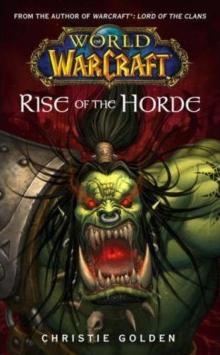 Rise of the Horde
Rise of the Horde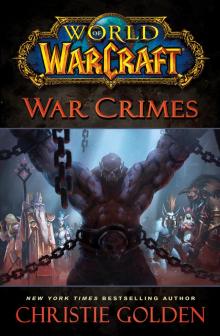 World of Warcraft: War Crimes
World of Warcraft: War Crimes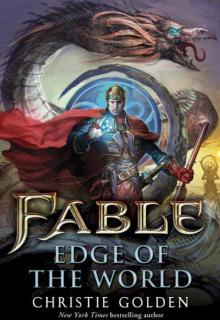 Fable: Edge of the World
Fable: Edge of the World Homecoming
Homecoming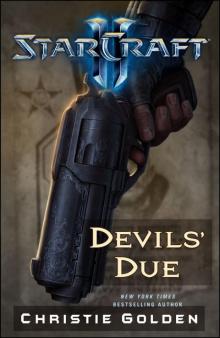 StarCraft II: Devil's Due
StarCraft II: Devil's Due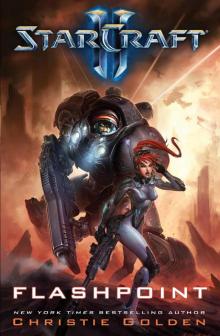 Starcraft II: Flashpoint
Starcraft II: Flashpoint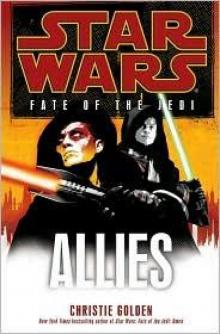 Allies
Allies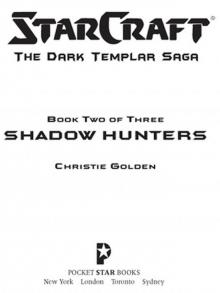 Shadow Hunters
Shadow Hunters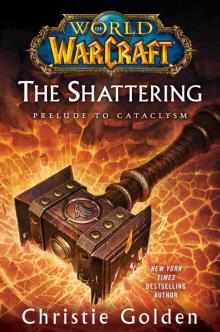 The Shattering: Prelude to Cataclysm wowct-1
The Shattering: Prelude to Cataclysm wowct-1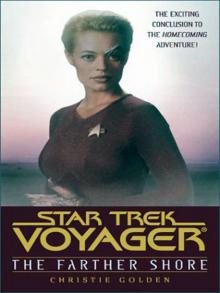 STAR TREK: VOY - Homecoming, Book Two - The Farther Shore
STAR TREK: VOY - Homecoming, Book Two - The Farther Shore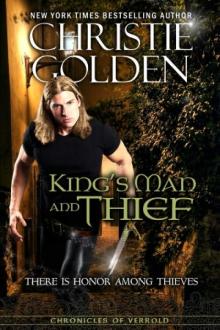 King's Man and Thief
King's Man and Thief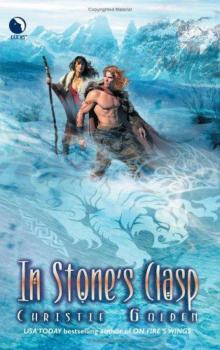 In Stone's Clasp
In Stone's Clasp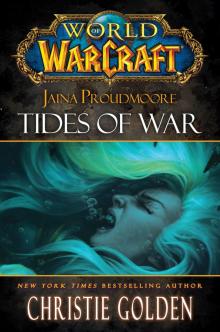 Jaina Proudmoore: Tides of War
Jaina Proudmoore: Tides of War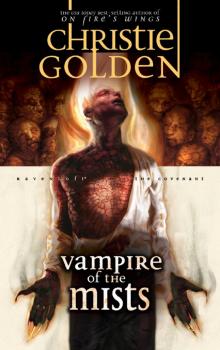 Vampire of the Mists
Vampire of the Mists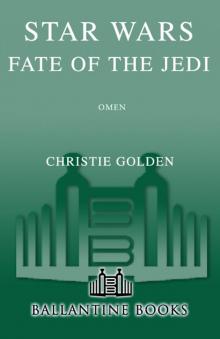 Star Wars: Fate of the Jedi II: Omen
Star Wars: Fate of the Jedi II: Omen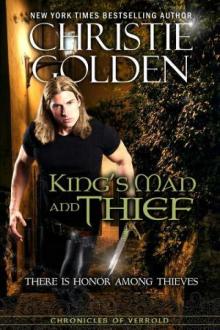 King's man and thief cov-2
King's man and thief cov-2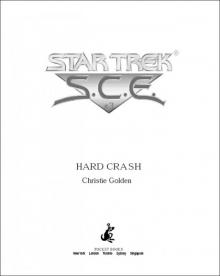 Star Trek
Star Trek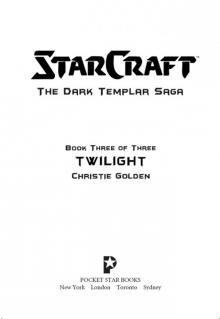 StarCraft: Dark Templar: Twilight
StarCraft: Dark Templar: Twilight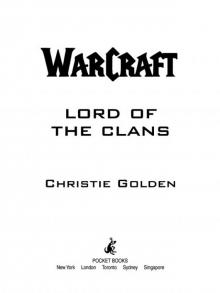 Lord Of The Clans
Lord Of The Clans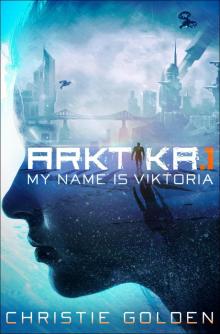 ARKTIKA.1 (Short Story)
ARKTIKA.1 (Short Story)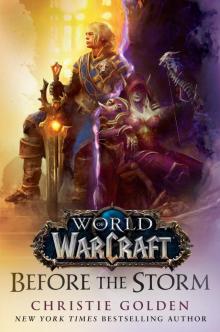 Before the Storm
Before the Storm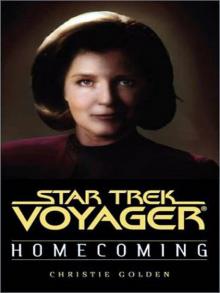 STAR TREK: VOY - Homecoming, Book One
STAR TREK: VOY - Homecoming, Book One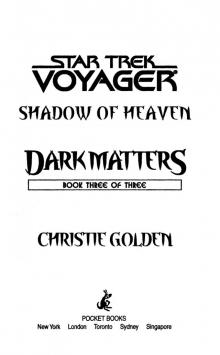 Shadow of Heaven
Shadow of Heaven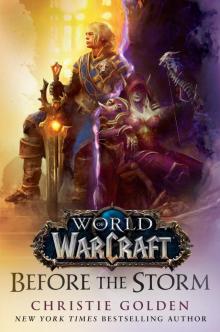 Before the Storm (World of Warcraft)
Before the Storm (World of Warcraft)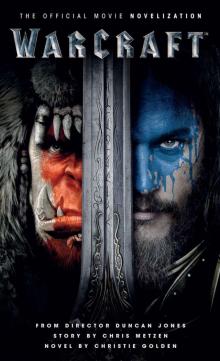 Warcraft Official Movie Novelization
Warcraft Official Movie Novelization Flashpoint
Flashpoint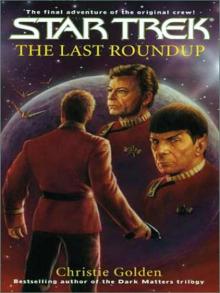 STAR TREK: The Original Series - The Last Roundup
STAR TREK: The Original Series - The Last Roundup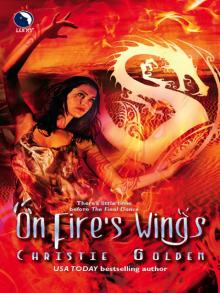 On Fire’s Wings
On Fire’s Wings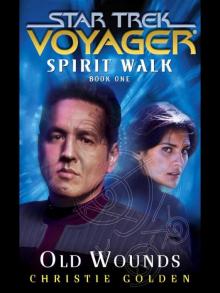 Spirit Walk, Book One
Spirit Walk, Book One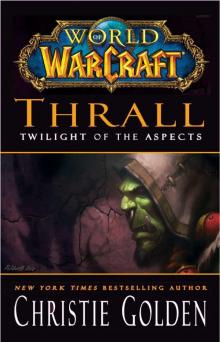 Thrall Twilight of the Aspects
Thrall Twilight of the Aspects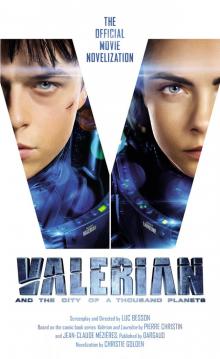 Valerian and the City of a Thousand Planets
Valerian and the City of a Thousand Planets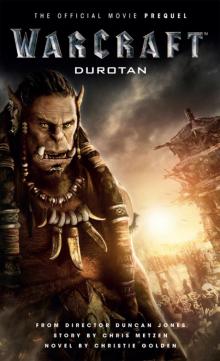 Warcraft
Warcraft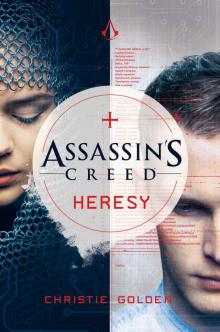 Assassin's Creed: Heresy
Assassin's Creed: Heresy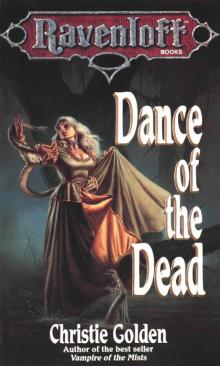 Dance of the Dead
Dance of the Dead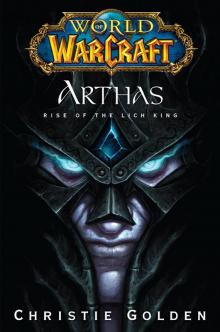 Arthas: Rise of the Lich King wow-6
Arthas: Rise of the Lich King wow-6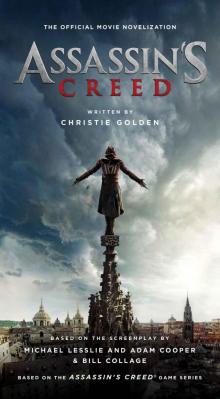 Assassin's Creed: The Official Movie Novelization
Assassin's Creed: The Official Movie Novelization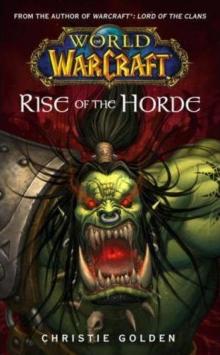 Rise of the Horde wow-2
Rise of the Horde wow-2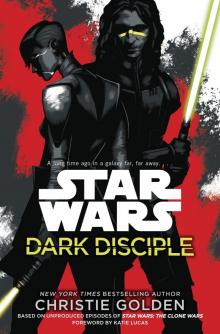 Dark Disciple
Dark Disciple Ghost Dance
Ghost Dance The Shattering
The Shattering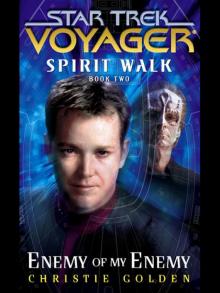 Spirit Walk, Book Two
Spirit Walk, Book Two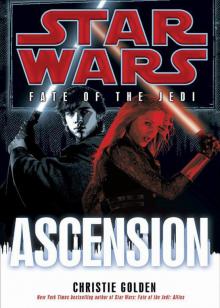 Star Wars: Fate of the Jedi: Ascension
Star Wars: Fate of the Jedi: Ascension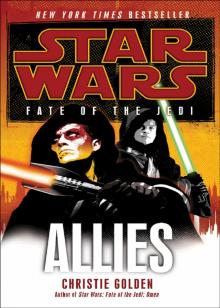 Star Wars: Fate of the Jedi V: Allies
Star Wars: Fate of the Jedi V: Allies The Enemy Within
The Enemy Within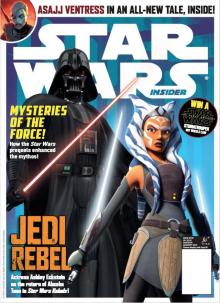 Kindred Spirits
Kindred Spirits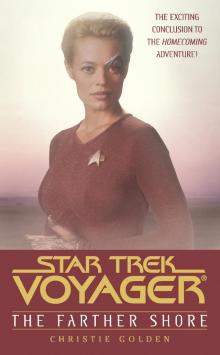 The Farther Shore
The Farther Shore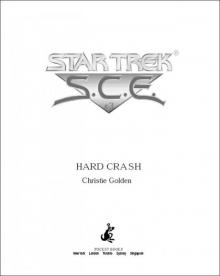 Star Trek: Hard Crash (Star Trek: Starfleet Corps of Engineers Book 3)
Star Trek: Hard Crash (Star Trek: Starfleet Corps of Engineers Book 3) Twilight
Twilight